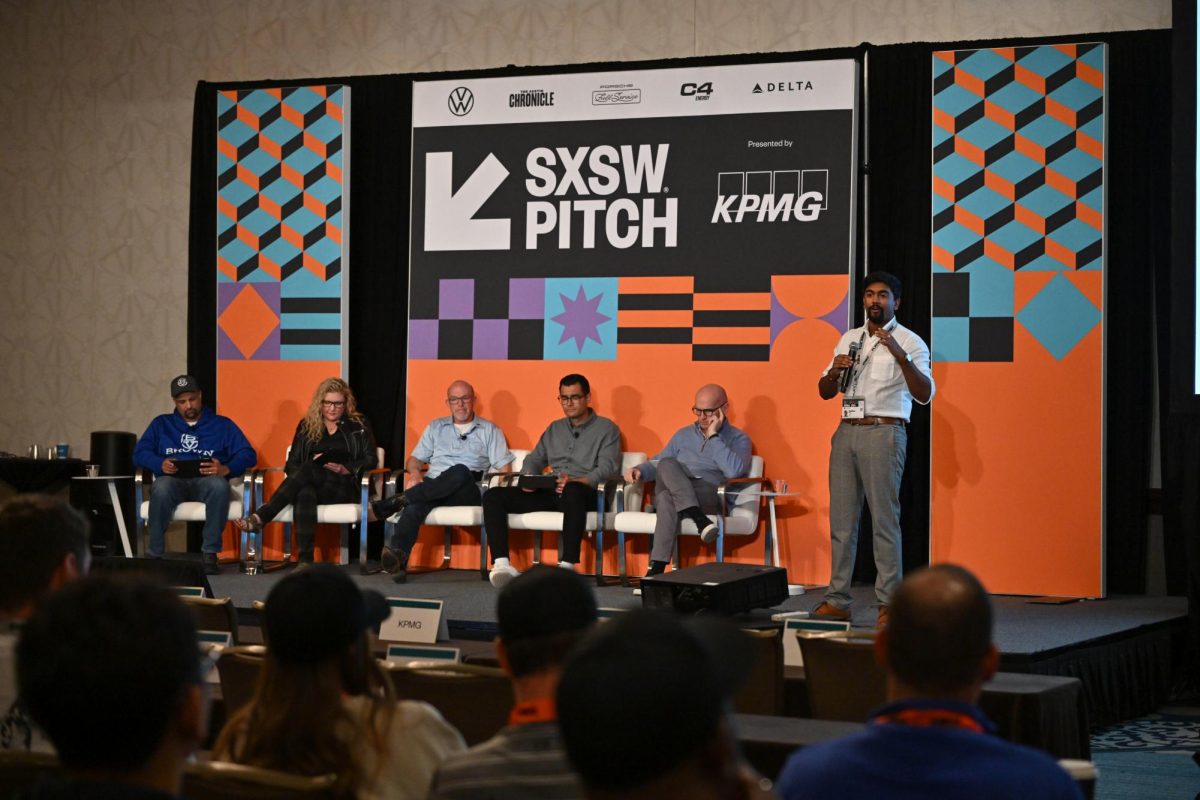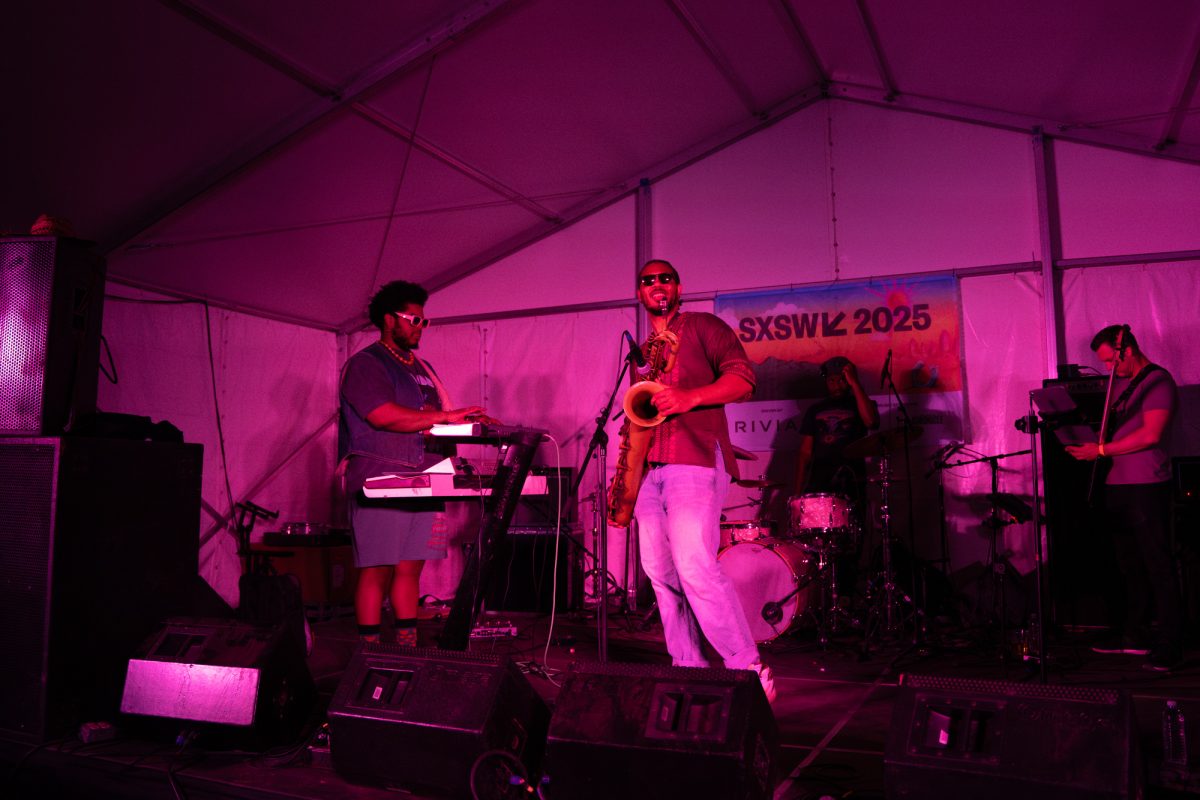Friction and cost remain two of the limiting factors of high speed public transit. A group of five UT students and alumni seek to address both of these variables with their startup MACH Transit.
MACH Transit (pronounced “mock,” as in the speed of sound), founded in 2022, develops methods of using magnetic forces to levitate objects for applications in transportation. The company started to take on SXSW with participation in the student category of the pitch competition Saturday, and will continue with the startup meetup on Monday and the magnetizing mobility panel on Thursday.
“(Our goal at SXSW is) spreading the word and what maglev technology could become,” said Alex Koo, MACH chief software officer and co-founder. “And showing that by pushing the boundaries of maglev levitation, we can make rapid transit not just faster, but more accessible and cost efficient.”
Magnetic levitation (maglev) appears as a hot topic in research because it reduces friction thereby increasing travel speeds from 200 mph with high speed rail to the 300-400 mph range with maglev technology, said Aaditya Ranjit, MACH chief operating officer and co-founder. Despite this, the major obstacle of scalability remains. Previous maglev technology included electrically complex tracks, as well as vehicles, making the production expensive on the scale required for mass transit. Ranjit said MACH Transit works to tackle this.
“Our innovation takes the electrical complexities that are on the track and brings it all onto the vehicle so that your track is super cheap to create and over long distances, your cost for infrastructure is greatly reduced,” Ranjit said.
Ranjit said all of the co-founders came onto the project wanting to expand public transit, but many non-technical factors exist to tackle the multifaceted issue. For now the company uses broadcast recording for motorsports as a way to work up to the goal of using the technology for public transport.
“We can have this (maglev transport) technology scaled down,” Ranjit said. “Instead of transporting people (we can) transport broadcast equipment at the same speed as the fastest vehicles in motorsports. (That gives) us a cool spin and commercializable avenue (for our technology) while we increase our public image (and) prove to people that this has promise in (transportation in the future).”
The five co-founders met as undergraduates at Guadaloop, a student organization that develops prototypes of maglev transportation that runs enclosed in a tube.
“(In Guadaloop) there’s a high concentration of people who genuinely wanted to push boundaries,” said Koo, an electrical and computer engineering senior. “Once you have an extremely fast transportation system, you’re inviting everyone to see the world in a new perspective where we’re no longer (bound) by the distances that separate us.”
The company comes to SXSW equipped with MACH Vision, a levitating camera system that travels 200 miles per hour, to serve as the company’s debut product and proof of technological concept.
Jack Phillips, MACH’s CEO and senior vice president of engineering spoke at SXSW 2023 on behalf of Guadaloop where he said he made helpful connections including two out of the three of MACH’s advisors.
“We had the fortune of (networking) last year at South by Southwest 2023 where we met some influential individuals that have helped us out a lot,” Phillips said. “We’re hoping to make similar connections this year.”














